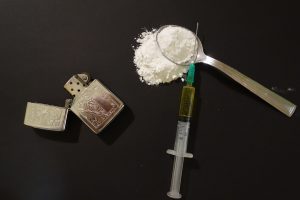Drug Abuse Worldwide

Image of various types of drugs. Source credit: Pixabay
Drug addiction affects the lives of millions of people worldwide. Drug-abuse can leave lasting physiological and psychological effects on users. In Canada, there are 47,000 drug-related deaths every year and the number continues to grow.
Drug-addiction is a life-long battle because it is a relapsing, chronic illness. Even after successful rehabilitation, one of the triggers that is known to cause a relapse in users is environmental cues related to their drug-use. These cues include places where they have taken the drug before or people they have taken the drug with. However, it is found that drug-addicts that exercise are less vulnerable to these environmental cues and thus less likely to relapse because of them.
Current Research
Initially, the mechanism behind the decreased vulnerability to drug-use associated environmental cues in exercisers was unknown. However, a recent article published by researchers at the University of Illinois studied this mechanism in mice and found differences in the peptides their body produced.
The mice were given cocaine injections for 4 days in chambers that had distinctive floor textures so that the mice would learn to associate that texture with their drug-use. Essentially, they created drug-associated environmental cues. The mice were then split up into two groups and kept in different cages for 30 days. One group of mice were kept in cages that had access to running wheels while the other group did not.

Mouse exercising on a running wheel. Source credit: Wikimedia Commons.
At the end of the 30-day trial, the researchers found that the mice that had access to a running wheel for exercise displayed a reduced preference for the cocaine-associated environment than the mice that did not exercise during that period.
They found that the exercising mice had less peptides related to myelin (a substance in the brain associated with fixing memories) and peptides related to actin (a substance involved in learning and memory) but higher peptides derived from hemoglobin (associated with cell-signalling in brain).
The results of the study conclude that changes related to peptides can help identify markers for drug dependence and relapse.
Why is this important?
The findings from the study can be incorporated into drug rehabilitation for people with any type of addiction. There is an increased value of including some sort of exercise or physical activity in rehabilitation therapies. Moreover, this discovery sets stage for potential new drugs that can be used to treat drug addictions by incorporating different peptides.
Watch this video that goes over some of the early warning signs of a relapse:

-Reshmin Randhawa


